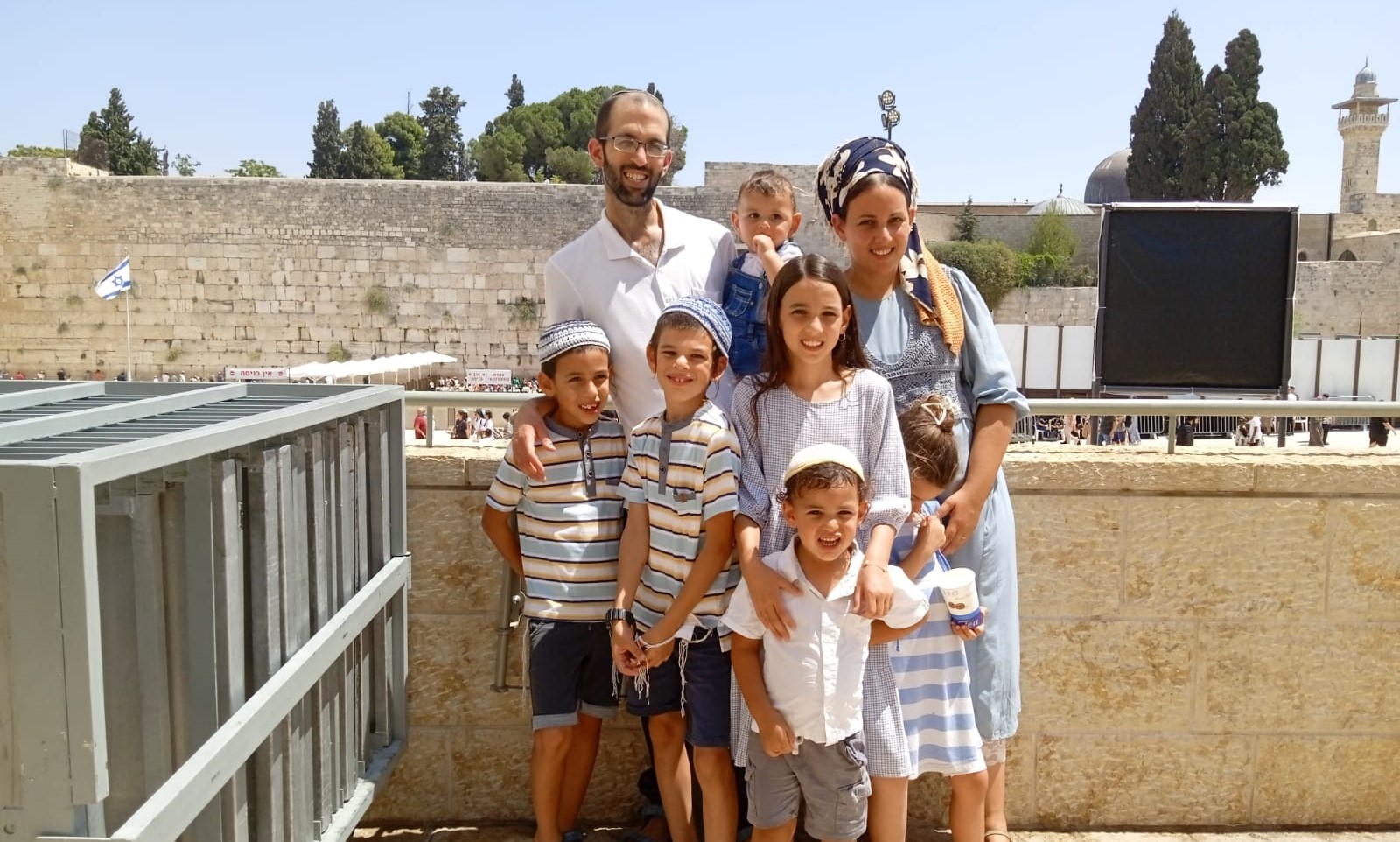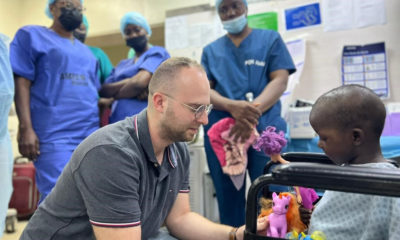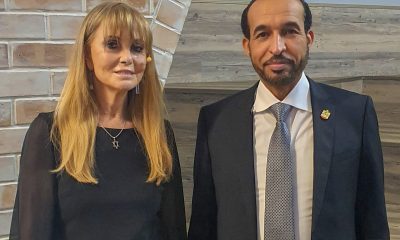
Featured Item

Sheba hospital and the South African miracle connection
When South African-based Naomi Hadar, the executive director of African Friends of Sheba Medical Center, visited victims of the 7 October massacre at Sheba’s Israeli headquarters, she felt drawn to one particular family. Later discovering their startling connection, she understood that a higher power was at work.
Hadar, who happened to be visiting Israel when the war broke out, knew that there were many wounded soldiers and victims of terror hospitalised at Sheba, and so arranged to visit these patients. Going from room to room, Hadar met the wounded and their families.
“When I met the Schindler family, I felt an immediate connection to the parents who were sitting at the bedside of their wounded son, Amichai, a father of six who was in critical condition,” she says. The couple had lost their oldest son in a terrorist attack 13 years prior, and kept vigil at Amichai’s bedside, praying to not lose another child.
Amichai’s mother, Sigalit, was similarly drawn to Hadar when they met. “That day, there were many sirens, so there was an uneasy atmosphere,” says Sigalit. “Then dear Naomi appeared in the trauma unit where she was visiting all the wounded. We started talking, and she took an interest in Amichai. It was like we were two souls who had known each other for a long time. It was heartwarming to see someone from South Africa coming and showing so much interest.”
The Schindlers told Hadar that Amichai saved his wife and six children when terrorists broke into their home on the Kerem Shalom kibbutz on the Gaza border on 7 October. The kibbutz is well known for having religious and secular residents who live together in harmony. This is something that appealed to Amichai and his family when they moved there five years ago as it reinforced their belief that Israel is one nation.
Speaking to the SA Jewish Report, Amichai who miraculously survived his ordeal, says that he and his wife and children immediately went to their bomb shelter upon hearing sirens at 06:30 on 7 October. “At around 10:00, two terrorists arrived and got into our house through the window,” he says. “I was holding the door closed, and was shouting to them go away, telling them I’d kill them. When they couldn’t get in, the terrorists put an explosive device by the door of the bomb shelter and detonated it.”
Holding onto the door to protect his family, Amichai took the full brunt of the explosion, which blew a hole through the door, and threw him to the other side of the room. “I didn’t lose consciousness, but I was injured in the face and lost one hand and a few fingers on the other one,” he says. His wife alerted the kibbutz’s emergency response team who arrived at the house to confront the terrorists. Sadly, two team members were killed, and eventually so too were the terrorists. As Amichai waited to be rescued, his wife encouraged their children to recite tehillim loudly so they wouldn’t be traumatised by his cries of pain.
“Even though I was badly injured, my wife and kids were unscathed,” Amichai says. “There were many miracles that day and on the days that followed. After the terrorists were killed, the response team got me out of the safe room and gave me first aid. They couldn’t extract me from the house because there were still other battles going on.”
Eventually, Amichai was moved to a different settlement, Naveh, where medics fought for his life. He ultimately had to be resuscitated twice and was airlifted to Sheba Hospital more than seven hours after he was injured. There was initially debate about flying him to hospital as he was deemed to be too badly wounded to survive, but the order was given to take him. Sigalit considers this to be one of many miracles in their story.
In critical condition, Amichai was admitted to intensive care. Against the odds, he began to heal. When doctors later removed ventilator tubes from his throat, he immediately recited the Modeh Ani prayer to thank G-d for returning his soul to his body.
“Baruch Hashem, today I’m walking, talking, eating, laughing, and sharing these miracles as we prepare for Chanukah,” he says. He’s undergoing rehabilitation as he adapts to life with his injuries, and making remarkable progress.
Hadar visited the family many times while she was staying in Israel, and was encouraged to witness Amichai’s remarkable progress. When one day she received an unexpected call from Sigalit, she feared the worst. Instead, she was amazed by what her new friend told her.
The Schindler’s younger son, Achiya, a reserve soldier serving in Gaza, had been given time to visit his wounded brother that day. As Sigalit told him about meeting a lovely woman called Naomi, a shocked Achiya asked if she was talking about Naomi Hadar. She was amazed to learn that Achiya had met Hadar and her husband, Ishi, at a special Shabbat dinner hosted in Johannesburg three weeks prior.
“We had, for the first time, been invited to Rabbi Yosef Hazdan, the son of Rabbi Dovid Hazdan, for a Friday night dinner,” Hadar says. “We were invited together with two Israelis, cousins who were busy touring Africa after their army service. This was their last Shabbat on the continent, and they were invited to the Hazdans. It was such a spiritual Shabbat, a dinner to remember.” It was also the first time that the Hazdan family had hosted a Shabbat dinner that was conducted entirely in Hebrew – something that resonated with all who attended.
“The Schindlers and I couldn’t believe that we had all had this divine feeling that we knew each other from somewhere, and I had unknowingly met their son,” says an emotional Hadar. “When I heard about the connection, I almost fainted. I had been seated next to Achiya at the dinner, and we had such a wonderful conversation. Sigalit said that everybody in Amichai’s hospital room cried when they heard this story because they knew it was no coincidence – it’s another miracle in a story that’s filled with miracles.”
Hadar plans to visit the Schindler family during an upcoming Israel solidarity tour she’s arranging, and will take her tour group to meet them too. “You can’t not believe in Hashem after this story,” she says.








